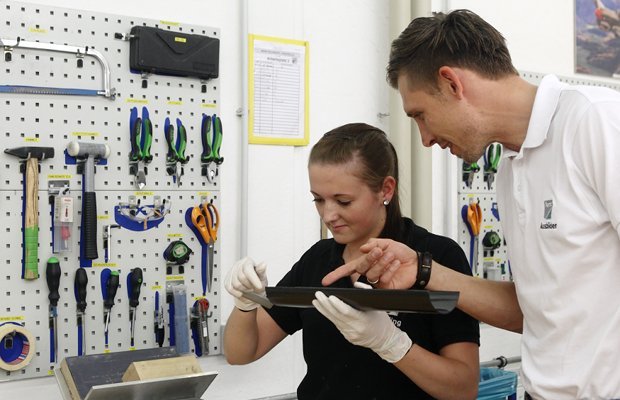Three former education secretaries back calls for urgent changes to apprenticeship levy – here’s why

Calls to link the apprenticeship levy to Britain’s immigration policy have been backed by three former education secretaries.
Lord David Blunkett, Sir Gavin Williamson and Nadhim Zahawi have lent support to a report calling for urgent changes to the government’s levy on firms to pay for apprenticeships – including linking the scheme to visa rules around occupations facing worker shortages.
A total of £4.3bn has been raised and gone unspent since 2018 due to barriers preventing small businesses making the most of the scheme, the Policy Exchange (PX) think tank says.
Zahawi, who was education secretary from 2021 to 2022, said the system needed to work for firms and Brits.
“Employers should be able to use the levy to train up home-grown talent – including on shorter and more flexible courses – instead of being forced to rely on immigration to fill these vacancies,” he argued.
£4.3bn retained by HMT
Lord Blunkett, chairman of Labour’s Council of Skills Advisers, wrote in the report foreword that a “renewed commitment” to the apprenticeship route was supported on a cross-party basis.
“Despite the welcome introduction of the apprenticeship levy, the number of those starting apprenticeships has fallen dramatically, not least amongst young people,” he warned.
And Sir Gavin, education secretary from 2019 to 2021, said the recommendations would allow smaller firms to “step up to support the growing demand for apprenticeships – and give tens of thousands of youngsters the chance to learn while they earn”.
Firms with an annual pay bill higher than £3m pay 0.5 per cent of this as an apprenticeship levy – which is used for training schemes, with some cash diverted to smaller companies.
But with more than £4bn retained by the treasury, entries have fallen from a high point of over 500,000 to only 349,190 in 2021 to 2022, with starts almost halving since 2015 to 16.
‘Grave injustice’ against apprentice-takers must end
Bureaucratic burdens of the scheme were also cited in responses from the more than 500 businesses surveyed on issues with the levy, while PX also found the number of apprentices aged 19 to 24 beginning schemes has fallen by 31 per cent since 2015 to 2016.
Recommendations include offering shorter and more flexible training, including HGV driving or coding bootcamps, and creating a £3,000 incentive for SMEs to train young apprentices.
Researchers also called for an end to the “grave injustice” of child benefit being taken from parents of apprentices aged 16-19 – who would receive it if their child were doing A-Levels.
Backers also include the Federation of Small Businesses (FSB), with Tina McKenzie saying the “sharp decline” was “alarming” and schemes “should not be at the mercy of the availability of funds in the levy pot”.
A government spokesperson said: “Thousands of employers are making good use of their levy funds. The levy has helped grow the apprenticeship budget to £2.7bn a year by 2024 to 2025 – supporting employers of all sizes and in all sectors. In 2021 to 2022, 99.6 per cent of that budget was spent.”
